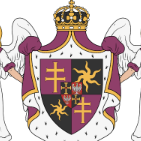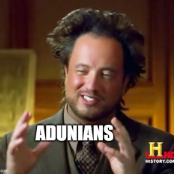The Royal Codex of the Kingdom of Balian: Volume II: Lex Civilis
-
Recently Browsing 0 members
No registered users viewing this page.
-
Popular Topics
-
Topics
-
Recent Status Updates
-
Options
Options
-
this is just a thought idk if anyone else agrees... but my fav type of woman archetype is the woman is strong through her femineity, rather than being strong due to being more masculine.
-
People who want to be Heroic need to be braver; most of the Antags on the server LET YOU live if you lose because you’re a more interesting and fun person to be set up against; the only times you die usually is if you are annoying, cowardly, or incredibly plot relevant to be killed.
No Recent Status Updates -
Options












Recommended Posts